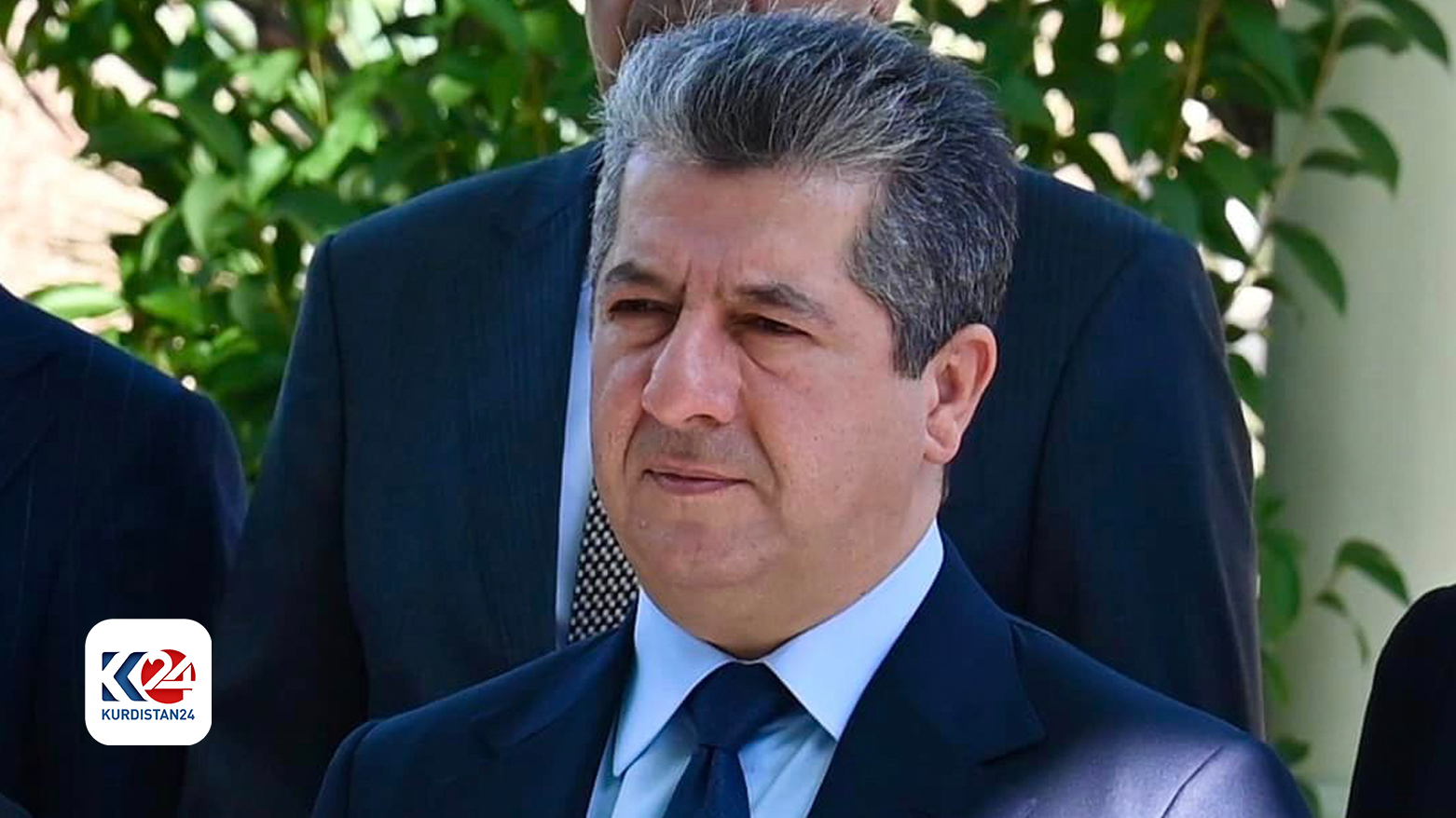PM Masrour Barzani defiantly vows to uphold Halabja's legacy amid continued injustice
"The mentality behind the campaigns to erase and exterminate the Kurdish nation, still exists and we must all stand against it, we must all staunchly forbid those who seek to toy with the victims of our nation,” PM Barzani stressed.

ERBIL (Kurdistan 24) - Kurdistan Regional Government (KRG) Prime Minister Masrour Barzani on Saturday, marking the 36th anniversary of the chemical attack on Halabja, announced that “the mass murder and genocide of Halabja shall always remain an open wound. We shall endeavor to remember the martyrs collectively and keep their memories alive.”
Marking the solemn anniversary of the Halabja massacre, Prime Minister Masrour Barzani stated that, "The mentality behind the campaigns to erase and exterminate the Kurdish nation, still exists and we must all stand against it, we must all staunchly forbid those who seek to toy with the victims of our nation.”
He highlighted that the purpose is to sow seeds of defeatist mentality among the Kurdish nation and “seeks to undermine the constitutional status of the Kurdistan Region.”
Saturday March 16, marks the 36th anniversary of the chemical attack on Halabja. However, following 13 years since the Iraqi parliament recognized the crimes of chemical attack as genocide, the Iraqi government as the inheritor to the former regime has refused to compensate the victims.
On that fateful day in 1988, Iraqi warplanes unleashed chemical gas upon the heart of Halabja and its surroundings, claiming over 5,000 innocent lives and leaving over 10,000 others wounded, some of whom continue to endure unimaginable suffering.
Shockingly, 68% of the victims were children under 18 years old, and the aftermath saw the complete destruction of 198 out of 216 villages. Additionally, as citizens fled to Iran, 211 children from 74 families went missing.
The KRG has repeatedly called on its federal counterpart to compensate the victims of atrocities against Kurds committed by the former Iraqi regimes, including the infamous Anfal Campaign (1986-89) that killed an estimated 180,000 Kurds.
Despite international condemnation, it was revealed in 2002 by the German newspaper “Die Tageszeitung” that over 158 international companies illicitly aided the Ba'ath regime in acquiring chemical and biological weapons. These companies spanned 11 countries, including Germany, the United States, France, and others.
Justice has been slow but not entirely absent. In 2005, the Dutch Supreme Court sentenced Dutch businessman Frans van Anraat to 15 years in prison for his role in supplying chemicals used in the attack. Furthermore, the arrest and subsequent execution of Ali Hassan Majid, known as Chemical Ali, in 2010 marked a significant milestone in holding perpetrators accountable.
